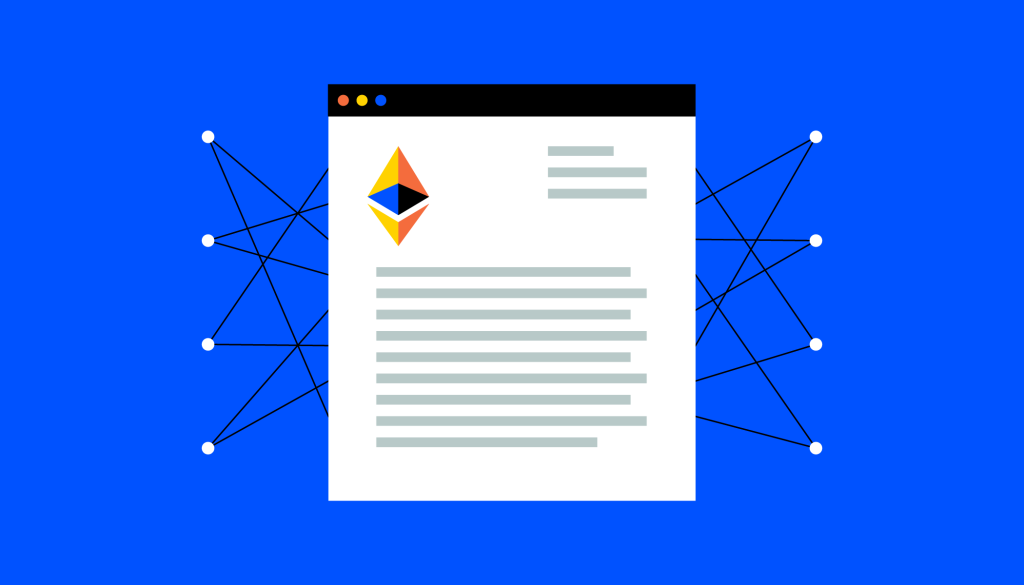In the fast-paced world of digital innovation, few technologies have garnered as much attention as smart contracts. Initially, a concept introduced by Nick Szabo in 1994, smart contracts have become a pivotal element of blockchain technology. These self-executing contracts automate the terms of agreements, reducing the need for intermediaries and significantly lowering administrative costs. The implications of smart contracts extend beyond the world of cryptocurrency, reaching into legal, real estate, and financial industries, where they are revolutionizing how business is conducted, agreements are enforced, and transactions are secured.
This article explores the concept of smart contracts, their underlying technologies, and how they are transforming industries by improving efficiency, reducing fraud, and fostering trust in digital environments.
What are Smart Contracts?
Definition and Core Concepts
A smart contract is a self-executing contract where the terms of the agreement are written directly into lines of code. These contracts automatically enforce and execute the agreed-upon actions once predefined conditions are met. Essentially, they are computer programs that execute automatically when the conditions encoded into them are satisfied, with no need for human intervention.
The concept of smart contracts is closely linked to blockchain technology, a decentralized, distributed ledger system that ensures transparency and security of transactions. By leveraging blockchain, smart contracts offer a reliable, tamper-proof mechanism for recording agreements and executing them without relying on centralized intermediaries, such as banks or lawyers.
How Smart Contracts Work
Smart contracts operate on the principle of if-then logic. They consist of coded rules that dictate what happens under certain conditions. For example, if a specific event occurs (such as the delivery of goods), then a predetermined action will take place (such as a payment being made). These contracts are stored on blockchain networks, ensuring that once a condition is fulfilled, the contract is executed automatically and cannot be altered.
To break it down:
- Conditions Defined: The terms and conditions are written in code and stored on the blockchain.
- Triggering Event: When the conditions are met (such as the completion of a task or the passage of time), the contract triggers automatically.
- Execution: Once triggered, the contract self-executes—making payments, transferring ownership, or performing other actions as needed.
- Recording and Verification: All activities related to the contract are recorded on the blockchain, ensuring transparency, traceability, and security.
The Underlying Technology: Blockchain
Blockchain is the backbone of smart contracts, providing the decentralized environment that makes them secure, transparent, and tamper-proof. A blockchain is a digital ledger that records transactions across a network of computers (or nodes). These transactions are grouped into blocks and linked in a chain, creating an immutable history of events.
Key Features of Blockchain
- Decentralization: Unlike traditional centralized databases, blockchain operates across a network of distributed nodes, making it difficult to alter or hack the system.
- Immutability: Once data is recorded on the blockchain, it cannot be changed or deleted, ensuring the integrity of the information.
- Transparency: Every participant in the blockchain network has access to the same data, fostering trust and accountability.
- Security: Blockchain uses encryption techniques to secure data and prevent unauthorized access, making it highly resistant to fraud and hacking.
These features make blockchain an ideal platform for executing smart contracts, as they provide the necessary environment for self-executing, trustless agreements.
Advantages of Smart Contracts
1. Cost Reduction
One of the primary advantages of smart contracts is their ability to reduce management costs. In traditional contract execution, parties often rely on intermediaries such as lawyers, notaries, banks, and insurance companies to ensure that the terms of the contract are honored. These intermediaries often add significant administrative costs, delays, and complexity.
With smart contracts, the need for intermediaries is eliminated, as the blockchain automatically enforces the terms of the agreement. This streamlines the process and reduces the cost of transactions. For example, in real estate transactions, smart contracts can eliminate the need for real estate agents and escrow services, cutting down on fees and delays.
2. Efficiency and Speed
Traditional contracts often require a lengthy process of negotiation, paperwork, and approval. Smart contracts, on the other hand, execute automatically once the conditions are met, drastically improving the efficiency of transactions. There is no need for waiting for third parties to verify, validate, or execute actions—everything is done in real time, reducing the time required for contract fulfillment.
For example, in the financial sector, smart contracts can automate loan issuance, insurance payouts, or trading settlements, which traditionally take days or weeks to process.
3. Accuracy and Reduced Human Error
Human errors in contract execution, such as misinterpreting terms or failing to perform a required action, can lead to costly disputes. Smart contracts reduce this risk by automating actions based on pre-set conditions. The terms are coded into the contract, reducing the chances of mistakes that might occur in manual processing.

4. Security and Trust
Smart contracts are stored on blockchain networks, which are highly secure due to their decentralized nature. Once a contract is executed, the transaction is recorded on the blockchain, making it tamper-proof and transparent. This transparency builds trust among all parties involved, as everyone has access to the same data, and no one can alter the contract once it has been executed.
Moreover, blockchain encryption ensures that data is secure, preventing unauthorized access and making smart contracts highly resistant to fraud.
5. Dispute Resolution
Smart contracts can also be designed to include built-in dispute resolution mechanisms. In cases where there is a disagreement between parties, the contract can automatically trigger predefined actions such as arbitration or a neutral third-party review. This helps streamline the resolution process and prevents lengthy litigation.
Applications of Smart Contracts in Various Sectors
1. Legal Industry
The legal industry has long been burdened by complex processes, paperwork, and the involvement of intermediaries in the creation and enforcement of contracts. Smart contracts can revolutionize the legal sector by automating many of these processes.
Contract Automation: Smart contracts can automate routine legal processes, such as the execution of non-disclosure agreements (NDAs), employment contracts, or service agreements. By using blockchain to verify the fulfillment of terms, legal practitioners can reduce the time and cost associated with contract drafting and enforcement.
Dispute Resolution and Arbitration: Many legal contracts involve clauses related to arbitration or dispute resolution. Smart contracts can automate this process by specifying the rules for arbitration and triggering actions if disputes arise. For example, an arbitrator can be assigned automatically, and the decision can be recorded on the blockchain to ensure transparency.
Intellectual Property: Smart contracts can also be used to manage intellectual property rights, ensuring that creators are automatically paid royalties when their work is used or reproduced. Blockchain ensures that all transactions are transparent and that the rights holders are compensated fairly.
2. Real Estate
The real estate sector stands to benefit significantly from the implementation of smart contracts. Real estate transactions often involve multiple parties, including buyers, sellers, agents, and lenders, which can lead to inefficiencies and delays. Smart contracts can streamline these processes by automating key steps.
Property Transfer: Smart contracts can automate the transfer of property ownership. Once a buyer and seller agree on the terms, the smart contract can automatically transfer the deed to the new owner once payment is made, without the need for a notary or escrow service.
Escrow Services: Escrow services, which hold funds during the transaction process, are often costly and time-consuming. Smart contracts can act as a decentralized escrow service, automatically releasing funds when the agreed conditions are met. This reduces transaction time and fees.
Rental Agreements: Smart contracts can also be used for rental agreements. Landlords and tenants can create a smart contract that automates rent payments and terms of the lease. If a tenant fails to pay rent on time, the smart contract can trigger automatic penalties or notify the landlord.
3. Financial Sector
Smart contracts are already making significant strides in the financial industry by automating various processes that are typically manual and time-consuming. Financial services such as banking, insurance, and investment can benefit from the advantages of smart contracts.
Automated Payments: Smart contracts can automate payments for various services such as loans, insurance premiums, or bond payments. By automating these payments, the risk of missed or delayed payments is reduced, and the process becomes more efficient.
Decentralized Finance (DeFi): DeFi platforms use smart contracts to offer financial services like lending, borrowing, and trading without relying on traditional financial intermediaries such as banks or brokers. These platforms are powered by blockchain technology, which ensures transparency, security, and reduced fees.
Insurance: Smart contracts can also be applied in insurance. For example, an insurance contract can be programmed to pay out automatically when certain conditions are met, such as in the case of a flight delay or a natural disaster. This ensures that claimants receive their payouts quickly, reducing the need for human intervention.
4. Supply Chain and Logistics
In the supply chain and logistics sectors, smart contracts can automate and streamline processes, ensuring that goods are delivered on time, and that payments are processed automatically.
Tracking and Verification: Smart contracts can be used to automatically verify the status of goods and services as they move through the supply chain. This reduces the need for paperwork and manual tracking, improving transparency and reducing delays.
Payment Automation: Payments can be triggered automatically when goods are delivered, ensuring that sellers are paid promptly and buyers receive their products without delays.
Challenges and Limitations of Smart Contracts
While smart contracts offer numerous benefits, their widespread adoption is not without challenges. Some of the key challenges include:
- Legal Recognition: Although smart contracts are becoming more popular, their legal status in many jurisdictions is still uncertain. Governments and regulatory bodies need to establish clear guidelines for the recognition and enforcement of smart contracts in legal systems.
- Complexity: Developing smart contracts requires technical expertise, and writing secure and efficient code is not always straightforward. Errors in coding could lead to unintended consequences or vulnerabilities in the contract.
- Integration with Existing Systems: Integrating smart contracts into legacy systems may require significant changes to infrastructure, which could be costly and time-consuming for businesses.
- Scalability: While blockchain provides security, its scalability can sometimes be an issue. As the volume of transactions increases, blockchain networks can become slow or expensive to use.
Conclusion
Smart contracts represent a transformative force in industries such as law, real estate, and finance. By automating agreements and transactions, smart contracts reduce costs, enhance efficiency, and create more secure and transparent systems. While challenges remain, the potential for these self-executing contracts to reshape industries is immense. With continued advancements in blockchain technology and greater legal recognition, smart contracts are poised to become an integral part of the digital economy, offering a new way of conducting business with trust, automation, and security.











































